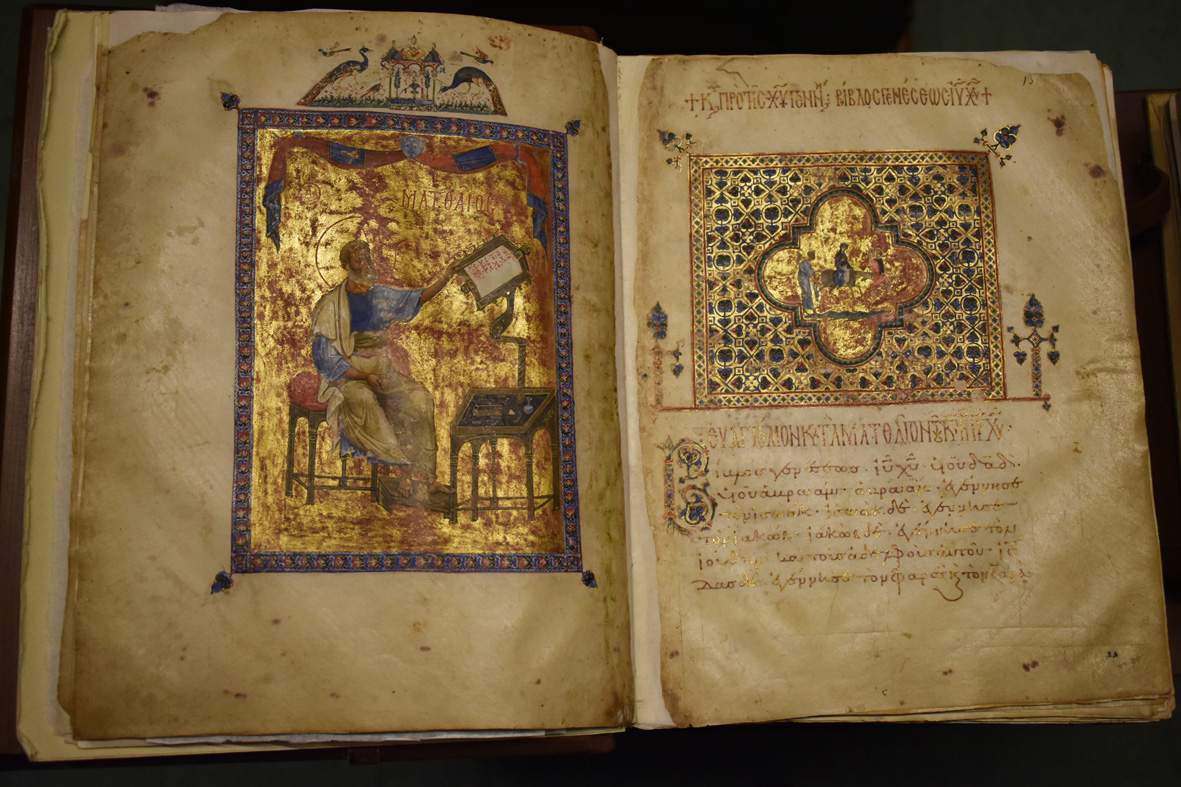The Palatine Library of Parma has now made available online the 35 Greek manuscripts created between the 10th and 18th centuries that are part of the library’s collection, part of the Pilotta Complex. The manuscripts have been published on the Internet Culturale portal, a site that provides access to the holdings of public libraries and prestigious Italian cultural institutions, curated by the Central Institute for the Unique Catalogue of Italian Libraries and Bibliographic Information (ICCU): on the dedicated page the individual manuscripts can be viewed, browsed through, enlarged in detail, at very high resolution, which also allows the user to grasp the physical details of the parchments or papers on which the texts were written. The “explosion” of thumbnails makes it possible to perceive details that the human eye could not detect.
The digitization of the manuscripts comes as a result of scientific work and a cultural project that has required years of specialized studies, high-level technical interventions and important collaborations, bringing together, alongside the Palatina and the University of Parma, three corporate partners, namely Chiesi Farmaceutici spa, in the person of Dr. Alberto Chiesi, Dallara spa, in the person of Dr. Andrea Toso, and the Memores company of Florence, in the person of Dr. Gennaro Di Pietro. Chiesi Farmaceutici and Dallara spa secured the funds for the digitization of the precious manuscripts, while Memores took care of the indispensable technical steps for the publication of the manuscript images. The scientific head of the project is Massimo Magnani, professor of Greek Language and Literature at the University of Parma and curator of the study conference on the Palatina’s Greek manuscripts held at the Library in November 2019. The work was carried out in collaboration with the Palatina Library’s Management.
“It is about,” says Paola Cirani, director of the Palatina, “the entire collection of Greek manuscripts in our library. Valuable works of enormous interest, indispensable for scholars of different disciplines. 11 of them come from the Palatine Fund, born from the collection started in Lucca by the Dukes of Bourbon, who brought together manuscripts by acquiring them from important private collections, such as that of the three cardinals of the Buonvisi family. One of the most valuable pieces is Ms. Pal. 5, a sumptuous Tetraevangelo, dated around the year 1000. Another 24 manuscripts belong to the Fondo Parmense, where they are found thanks to the work of Paolo Maria Paciaudi (1710-1785), the Palatina’s first librarian, and Giovanni Bernardo de Rossi (1742-1831), the creator of the collection of that Jewish fund of manuscripts and printed books that makes the Library unique to this day. Among the treasures of this fund is the Parchment Scroll (Ms. Parm. 1217/2), reunited with three others in a case, enriched with the gold-stamped coat of arms of Ferdinand of Bourbon, as well as Simone Grammatico’s Etymological, a work of inestimable value.”
“This new openness to the world,” says Simone Verde, director of the Complesso della Pilotta, “is a sign of how we are realizing the New Pilotta: not a closed fortress of knowledge for the few, but a platform where knowledge is shared, with local users and visitors but also with those who cannot come to Parma but who want to know the incredible treasures of our City. Wherever they are.”
Pictured: the Ms. Pal. 5
 |
| Parma, Palatine Library digitizes and puts online 35 ancient Greek manuscripts |
Warning: the translation into English of the original Italian article was created using automatic tools. We undertake to review all articles, but we do not guarantee the total absence of inaccuracies in the translation due to the program. You can find the original by clicking on the ITA button. If you find any mistake,please contact us.